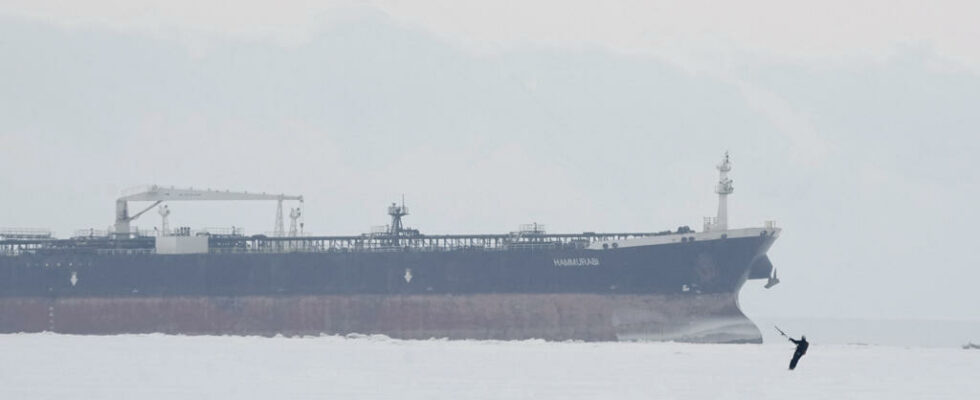The United Kingdom announced on Tuesday December 17 that it was taking sanctions against new ships in this fleet made up of undeclared Russian tankers or under foreign flags, which allows Moscow to export its oil by circumventing Western sanctions.
3 mins
The announcement was made on the sidelines of the summit of the expeditionary force, a military cooperation initiated by the British, which had at the heart of the debates aid to Ukraine and its energy system. London has declared that it will take sanctions against 20 additional ships of the “ ghost fleet » which allows Russia to export its oil bypassing Western restrictions. In total, more than 100 vessels are now sanctioned by the United Kingdom, which has also taken measures against two entities of the energy company 2Rivers, “ pillar of the oil trade » with Moscow.
To get around the restrictions, Russia uses this fleet made up of often aging and operated under foreign flag by dubious owners, without adequate insurance. The Russians thus circumvent the sanctions imposed on oil and continue to obtain foreign currency to continue the war in Ukraine. “ These sanctions will increase pressure on Putin’s already seized war economy “, said British Prime Minister Keir Starmer in a press release.
Also readHow Gabon became the new ally of the Russian “ghost fleet”
An environmental threat
The United Kingdom, Denmark, Sweden, Poland, Finland and Estonia agreed in December to step up their fight against “ships”. ghosts » in the Baltic Sea or the North Sea. This by asking their maritime authorities to request proof of insurance from suspect boats. Estonia has announced that it has carried out more than 200 checks since the start of the summer in its territorial waters, with a majority of vessels having presented the required documents, reports our regional correspondent, Marielle Vitureau.
In addition to the financial issue, the circulation of this fleet is also an environmental problem. An oil leak could endanger the already fragile Baltic Sea ecosystem. Twelve countries bordering the Baltic Sea and the North Sea have therefore committed to carrying out more controls to prevent and deter the circulation of this ghost fleet. For the moment, among them, only the British and the Estonians were carrying them out. From now on, controls will become more systematic and will make it possible to draw up an inventory of this fleet which, no longer passing through European ports, escapes all control.
Aid for energy production in Ukraine
“ While Putin’s oil revenues continues to fuel its illegal war, Ukrainian families endure cold, dark nights, often without heat, light or electricity, targeted by relentless Russian missile attacks “, lamented Keir Starmer, who also announced emergency aid of 35 million pounds (42 million euros) intended to repair Ukraine’s energy infrastructure and to help the population of this country which is beginning its third winter of war.
Twenty million pounds will be devoted to “ essential repairs to the electricity transmission network » and energy production, as well as the protection of critical infrastructure. The remaining 15 million will make it possible to provide basic necessities to the most deprived, or even thermal kits or generators to Ukrainian civilians.
According to London, more than two-thirds of the country’s energy production capacity has been destroyed, damaged or passed into Russian hands since the February 2022 invasion.
Also readWhy sanctions against Russian oil are missing their goal
